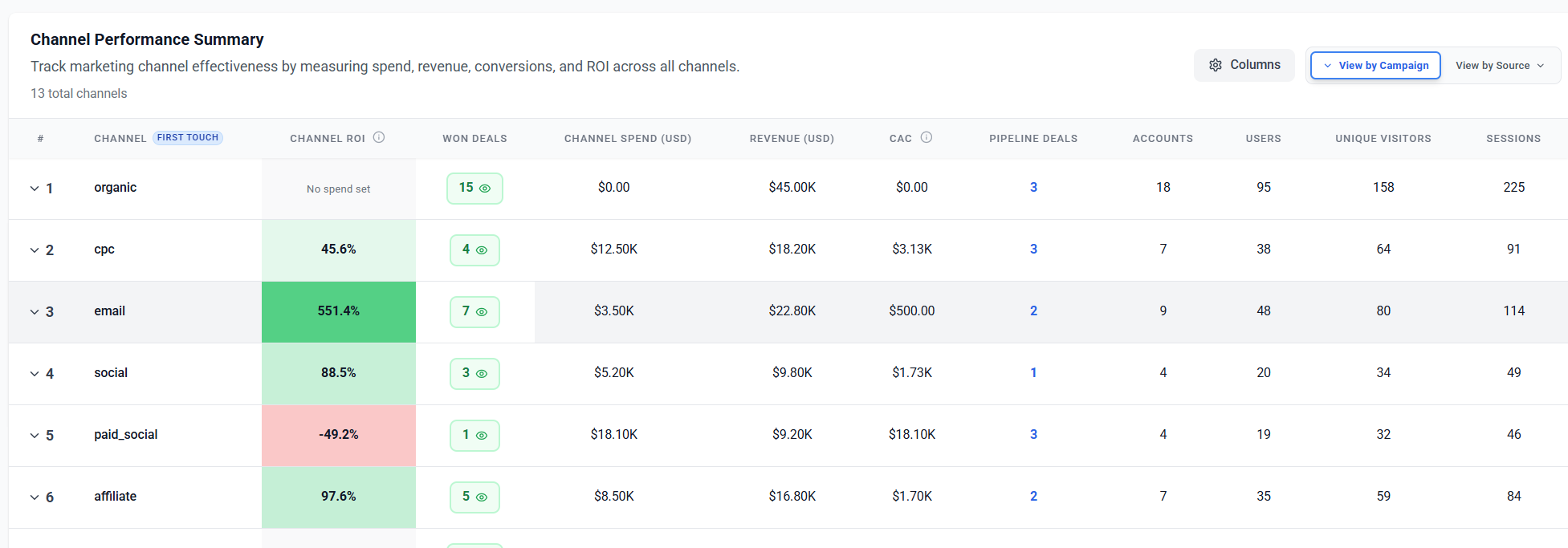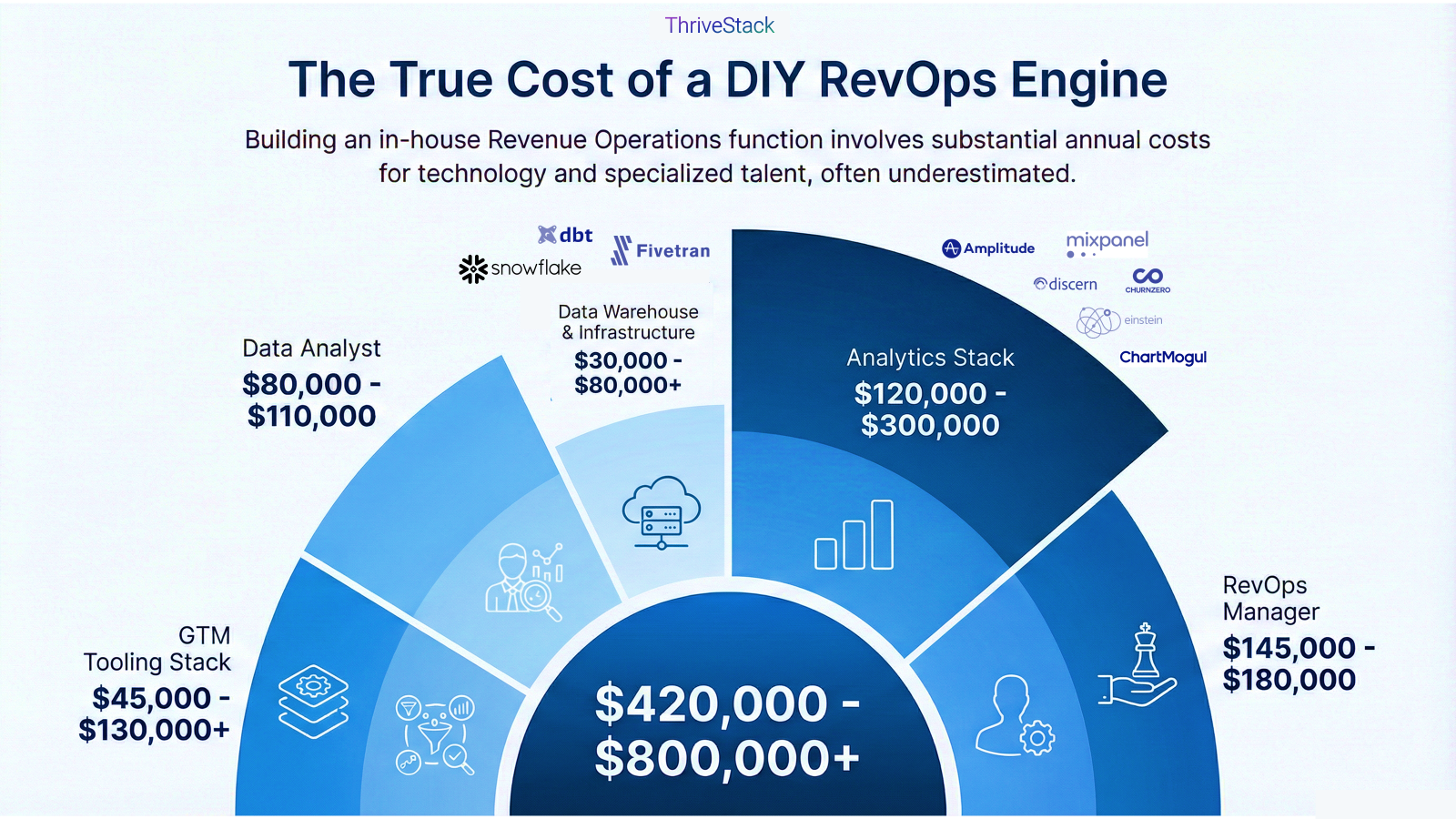A real-world guide to picking the best free tool, without falling into sneaky traps
By Prateek Punjabi, GTM Engineer at ThriveStack
If you’ve ever tried finding the best free email marketing tool, you know it’s a minefield. Between fake “free trials,” hidden limits, and branding you can’t remove, it’s easy to waste hours signing up for platforms that don’t deliver.
As someone building for early-stage growth and outbound marketing at ThriveStack, I’ve tested nearly every popular free email marketing service out there. And spoiler alert — not all “free” plans are what they claim. Some hit you with sneaky trials, others plaster ads all over your campaigns, and a few even send your emails straight into spam.
This guide combines results from my deep dive into free email marketing tools — focused on real usability, deliverability, and performance — so you can find what actually works for your team.
What I Looked For
Before recommending any email marketing platforms (free), I used a consistent checklist:
- Real Free Plan – No trials or credit card traps
- Minimum 650–1,000 Subscribers – Enough to actually test
- Usability – Editor, UX, and ease of onboarding
- Deliverability – Does your email even land in the inbox?
- Branding – How aggressively does the tool self-promote in your emails?
- Domain Authentication – Required? Easy to set up?
- Support Access – Do they ignore free users?
- Spam from the Platform – Do they spam you?
The Final Contenders
Top Free Email Marketing Tools That Made the Cut
What Surprised Me About “Free” Email Marketing Tools
1. Most Tools Start You on a Trial
MailerLite was the biggest offender here. It looks free… until you realize you’re in a 30-day trial. You need to manually downgrade to the actual free plan. Others like Beehiiv and Email Octopus were much more transparent.
2. Branding is a Deal-Breaker
If you're using email as part of your brand-building or sales funnel, even a small “Sent by XYZ” badge can reduce credibility. Email Octopus and Sender had minimal, unobtrusive branding. Mailjet and Beehiiv? Giant banners.
3. Domain Auth = Inbox or Spam
Without domain authentication, your emails are far more likely to land in spam. Thankfully, tools like MailerLite and Sender make it painless. Mailjet and MailerCloud? Total DNS rabbit holes. Avoid if you're not technical.
4. Some Tools Spam You
Beehiiv and Substack don’t just help you send emails—they also send you a ton of onboarding content, product updates, and reminders. If you're a minimalist like me, it's a no-go.
What Worked
- Genuinely Free Email Marketing Plans
Genuinely Free PlansEmail Octopus and Sender.net offered transparent free email marketing services — no credit card, no hidden upsells.
- Clean User Experience
Editors in Email Octopus, Sender, and MailerLite were fast, polished, and easy to navigate—ideal for quick onboarding and campaign creation.
- Minimal Branding
Email Octopus and Sender kept branding subtle, letting users build credibility without looking like they're using a free tool.
- Domain Authentication Made Simple
Sender and MailerLite offered intuitive domain auth processes, helping improve inboxing without deep DNS knowledge.
- Generous Limits
Sender.net offered 2,500 contacts and 15K emails/month among the best in the test for small teams doing serious outreach.
What Didn’t Work
- Misleading Trials
Tools like MailerLite automatically placed users into a trial that had to be manually downgraded—easy to miss and misleading.
- Overt Branding
Beehiiv and Substack added heavy footers or ecosystem lock-in, which hurt email professionalism and flexibility.
- Deliverability Issues
Platforms like Zoho Campaigns and Mailjet had buggy editors or weak inbox placement, making them unreliable.
- Tech Barriers in Setup
Mailjet and MailerCloud made domain authentication overly complex—especially painful for non-technical users.
- Spam from the Platforms Themselves
Beehiiv and Substack overloaded users with onboarding spam and content updates—clutter for those seeking focus.
After switching to Brevo for outbound campaigns and for newsletter-style updates, I saw a 38% improvement in inbox placement and a 21% uplift in open rates compared to a previous setup. With cleaner branding and better targeting, click-through rates increased by 16%, and the setup time dropped to under 30 minutes per tool, making them not just free, but fast and effective for early-stage growth.
Recommendations Based on Real Use Cases
What to Avoid
- Mailjet & MailerCloud – Painful DNS setup, and deliverability suffers
- Benchmark Email – Clean UI, but 500 contacts is too limiting
- Substack as a SaaS tool – Great for creators, not for marketers
Conclusion: Cut Through the Noise—Pick Tools That Actually Work
Email marketing for startups and growth teams shouldn't feel like navigating a minefield of "free" plans that aren’t really free. After testing every major platform firsthand, the pattern is clear:
- Email Octopus and Sender.net offer the most honest, friction-free options for teams that want to launch quickly, scale outreach, and stay in control of their brand.
- MailerLite is solid if you're ready to manually downgrade from the trial and don’t mind that extra step.
- Avoid tools that lock you into branding, ecosystem traps, or technical setups you can’t manage.
If you’re building outbound campaigns or newsletters as part of your activation loop or growth stack, focus on tools that respect your workflow—not ones that waste your time.
Want to make sure your emails don’t leak conversions between sends? Check out our deep dive on email sequence leaks — how to identify hidden drop-offs and fix them fast.
Build Your Growth Stack, Smarter
At ThriveStack, we help growth teams move faster with no-BS marketing tools and data automation.
Want help picking the right stack or automating outreach?
Talk to our team
FAQs: Free Email Marketing Tools Guide
1. What is the best free email marketing tool for startups?
Email Octopus and Sender.net are top picks for startups because they offer generous limits, minimal branding, and simple onboarding.
2. Do free email marketing tools hurt deliverability?
It depends on domain authentication. Tools like Sender.net and MailerLite make this easy, improving your chances of landing in the inbox.
3. Why is branding a problem in free plans?
Branding like “Sent via XYZ” reduces trust, especially in B2B sales or professional newsletters. It can make your emails look less credible.
4. How many contacts can I manage for free?
Most free plans cap you between 1,000 to 2,500 contacts, but Sender.net offers one of the most generous limits at 2,500 contacts and 15K emails/month.
5. Is Brevo (Sendinblue) still a good option?
Brevo is great for unlimited contacts but limits daily sends to 300 emails/day, which can be restrictive for outbound sequences





